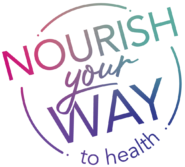
Protein plays many important roles in the body. It’s a fundamental building block, functioning as the structural skeleton for cells. More than 10,000 types are found in your body from your organs, muscles, and tissues to your bones, skin, and hair. Protein is also a critical part of the process that fuels your energy and carries oxygen throughout your body in your blood. It helps antibodies, which fight off infections and illnesses. It keeps cells healthy. Enzymes, one type of protein, drive biochemical reactions like digestion. They destroy toxins, build muscles, and break down food particles during digestion.
Proteins are made up of smaller parts called amino acids. Foods with protein can contain at least 20 types of amino acids. Nine of those amino acids are considered essential, meaning our bodies can’t make them on their own. Our bodies use all amino acids in different combinations to make the proteins we need. When you eat animal protein, it may be easier to get your essential amino acids.
How much protein do we need?
The National Academy of Medicine recommends that adults get about 0.8 grams of protein a day for every kilogram they weigh. That’s about 7 grams for every 20 pounds. It suggests babies and children get a bit more, ranging from 1.2 grams per kilogram for infants to 0.85 grams per kilogram for teens. (To find your weight in kilograms, divide your weight in pounds by 2.2046. Then, multiply that number by 0.8 to figure out how many grams of protein you need as an adult.) Under the guidelines, a 150-pound adult would need about 54 grams of protein per day. This would look like about 2 medium-large chicken breasts.
What do you mean by quality protein?
Consuming high quality is critical. Let’s start with kinds of animal protein. Conventional meat is not healthy in most cases. When we buy regular meats or farmed fish, we are consuming meat from human-fed animals. I hate to be the bearer of bad news, but humans often do not feed animals natural, wild food. Ideally, we want to eat protein from healthy animals.
Here is a list of animal protein:
Chicken Breast: Chicken breast is a lean source of protein, low in fat, and versatile for cooking methods like grilling, baking, or sautéing.
Beef: Beef is a rich source of protein and essential nutrients like iron and zinc. Lean cuts such as sirloin or tenderloin are healthier options.
Turkey: Turkey is a lean protein source that is commonly consumed roasted or in ground form for dishes like burgers, meatballs, or chili.
Fish (Salmon, Tuna, Cod, etc.): Fish is high in protein and heart-healthy omega-3 fatty acids. Grilled, baked, or steamed preparations are popular.
Eggs: Eggs are a complete protein source and can be prepared in various ways, including boiled, scrambled, fried, or baked.
Dairy Products (Milk, Cheese, Yogurt): Dairy products like milk, cheese, and yogurt (get sugar-free) are rich in protein. They can be consumed alone or used in cooking and baking. I recommend dairy from goats or sheep since this kind of protein is NON-INFLAMATORY with A2 casin (not A1 which is from your typical dairy cow in the US). Info from Dr. Mark Hyman.
Pork: Pork is a good source of protein, vitamins, and minerals. Lean cuts such as pork loin or tenderloin are healthier options.
Lamb: Lamb is another protein-rich meat option, commonly consumed roasted or grilled.
Shellfish (Shrimp, Crab, Lobster): Shellfish are low in fat and rich in protein, vitamins, and minerals. They can be boiled, grilled, or sautéed.
Duck: Duck meat is rich in protein and flavor, commonly roasted or braised for dishes.
Buy high quality when you can!
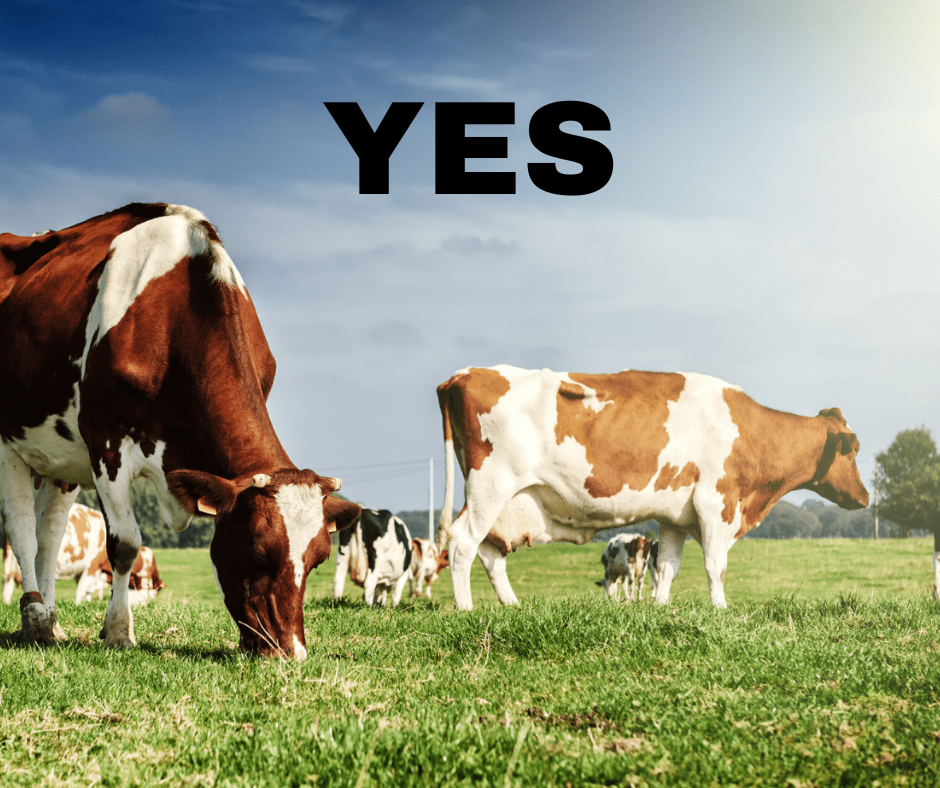
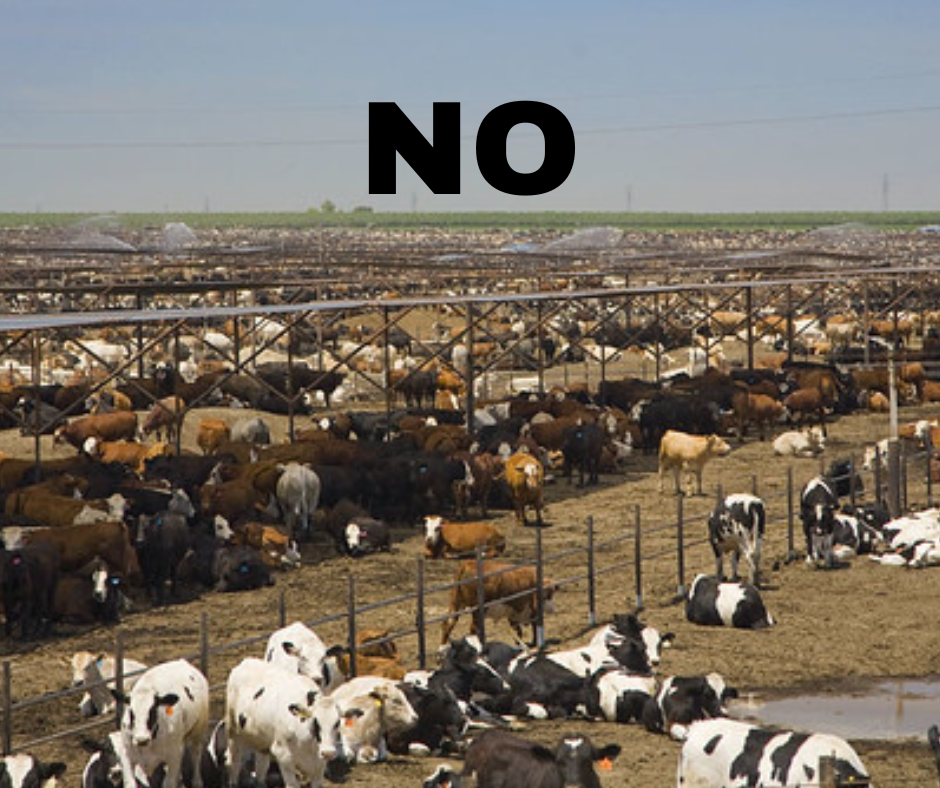
Commercially raised cows, for example, are usually fed grains, corn and non-natural foods to “fatten them up.” Not only does the marbling of the meat taste better to many people, but the cows get heavier so the farmers can sell them at a higher price. It goes deeper. Antibiotics and hormones are often given to these cattle, and then we often ingest those antibiotics too—not ideal.

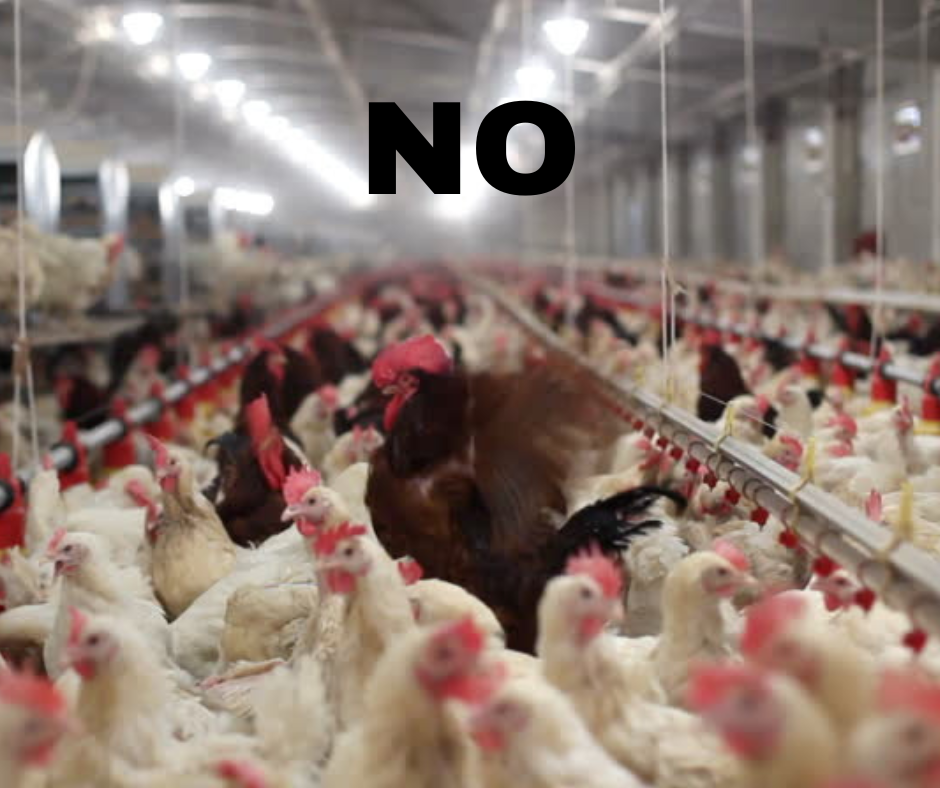
Non-pastured chickens and farm-raised fish are also fed by humans. Buying pasture-raised, wild-caught, and organic chicken and fish is best. Yes, these are more expensive in most cases, but your body will thank you. Eggs from pasture-raised chickens are also preferable. The yolks are normally larger and darker—they contain more healthy nutrients like more vitamin A, E, and B-12. They also contain more of omega-3 fatty acid as opposed to omega-6 (The combo of more omega-3 to 6 is WAY healthier). YES!
Other proteins that is not animal protein
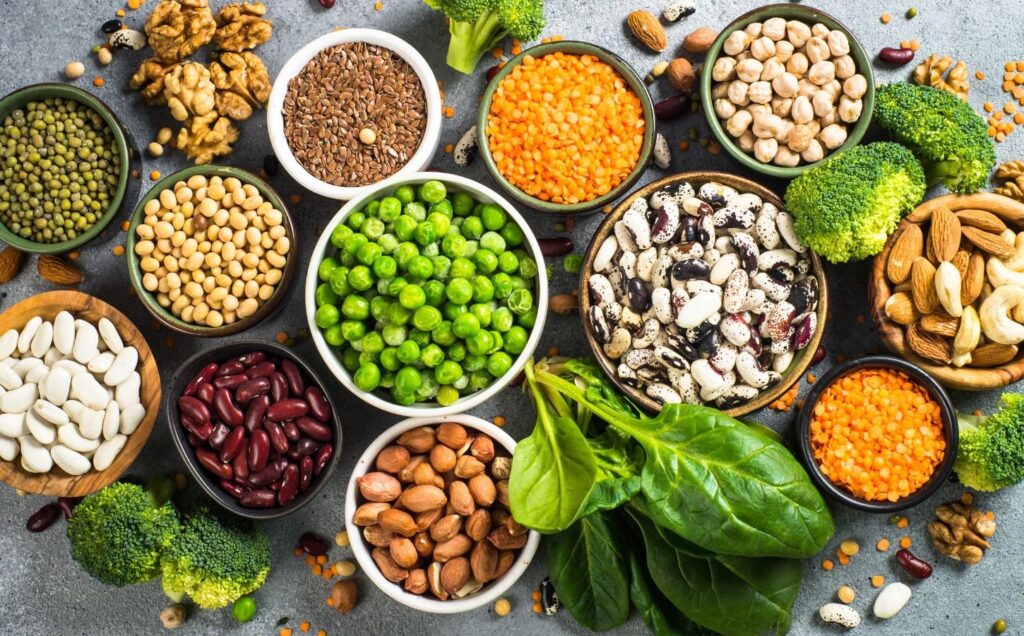
Just as protein is essential for muscle building, iron is equally important for growth and development. Our body needs iron to produce hemoglobin, which carries oxygen from the lungs to other parts of our body.
And to avoid protein and iron deficiencies, vegan diets need careful planning. But there are plenty of plant-based protein and iron sources. Hence, you’ll have enough options to fuel your body with Iron and protein as a vegan. Still, buy quality or organic when possible.
For protein & iron, vegans can eat:
Beans
Beans, such as, soybeans (non GMO), pinto, black beans, and peas, snow peas, lentils, navy beans, garbanzo beans, are a rich source of protein. Approximately 170 grams of beans contain 15 grams of protein, and you can add them to your diet as per your protein requirements.
Beans also contain other essential components like carbs, fiber, folate, potassium, manganese, potassium, etc., which can have numerous benefits.
Dr. Mark Hayman says to limit or avoid:
- Lima beans and kidney beans (high in starch)
- Baked beans (high in sugar)
- Peanuts, for the most part (due mold—toxins)
Legumes
You can get 18 grams of protein from 198 grams of legumes like lentils and chickpeas. This is why adding legumes in the right quantity would not let you suffer from protein deficiency.
Additional benefits of legumes are that they contain fiber, folate, iron, and manganese, as well as antioxidants.
Tofu & Tempeh
Tofu and tempeh are vegan alternatives to dairy and meet. These are made from fermented soybeans and are again a good plant-based protein source. Be sure it’s organic!
100 grams of tofu or tempeh will provide you with approximately 12 to 20 grams of protein. You can add them to your salads or sandwiches or stir-fry them with other veggies for a good burst of flavor.
Green Peas
Green peas are another ingredient that you can include in your diet to keep up with your protein intake. One cup of cooked peas can provide you with 9 grams of protein. Mix it with other legumes, tofu, and some greens for a delicious protein-packed salad.
Whole Grains
Whole grains like wheat, barley, quinoa, brown rice, and bulgur would not only provide you with protein but will also ensure that your body gets enough fiber, iron, manganese, and carbs. I recommend eating grains is small amounts. It spikes your blood sugar!
Nuts & Seeds
Regular consumprion of nuts and seeds, such as almonds, cashews, chia seeds, pumpkin seeds, sunflower seeds, hemp seeds, pumpkin seeds, etc., is a good way to top up your protein intake. 100 grams of nuts seeds contain around 20-30 grams of protein. Nuts and seeds also contain enough iron, healthy fats, vitamins E & B, calcium, phosphorus, etc.
Fruits & Vegetables
Eating protein-rich fruits and vegetables like broccoli, spinach, Brussels sprouts, kale, Swiss chard, collard greens, asparagus, beetroot, sweet potatoes, bananas, blackberries, pomegranate guava, would help you keep up with your protein and iron needs.
Sources of Protein for Vegans
To provide your body with enough nutrition, you need to incorporate a variety of protein sources. Since not all plant-based protein sources contain all the nine essential amino acids, a well-balanced combination of a variety of foods is recommended. See below for a list of foods and the protein they contain per 100 grams:
- Lentils – 9 grams
- Black beans – 8 grams
- Chickpeas – 8.9 grams
- Soybeans (cooked) – 16.6 grams
- Peas – 8 grams
- Tofu – 5 grams
- Tempeh – 19 grams
- Seitan – 25 grams
- Quinoa – 4.5 grams
- Brown rice – 3 grams
- Spelt – 6 grams
- Teff – 4.9 grams
- Millet – 3.5 grams
- Hemp seeds – 31.6 grams
- Pumpkin seeds – 29.8 grams
- Almonds – 21.2 grams
- Pistachios – 21.1 grams
- Sunflower seeds – 19.3 grams
- Flax seeds – 18.3 grams
- Broccoli – 3 grams
- Guava – 4.5 grams
- Spinach – 2 grams
- Soy milk (non GMO) – 6 grams
- Pea milk – 4 gra
In conclusion, eat your healthy proteins to extend your life.
Any aha moments? Feel free to post comments or questions below.
Adrienne
xo
